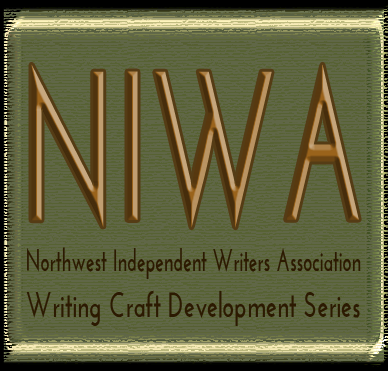 There are times when getting your phrasing right is confusing. Many frequently used words are "homonyms" or soundalike words. At times, only a homonym, a word that sounds very much like another, can be used in a sentence. That similarity makes it hard to know which word is correct in each circumstance, and when you are spewing the first draft of a manuscript, autocorrect may "help you" by inserting the wrong instance of those words. If their meaning is similar but not the same, negotiating the chicken yard of your manuscript in the second draft becomes quite tricky. This is where the diligent author does a little research. We go to the internet and Google every possible spelling of the word and decide which of the sound-alike words is the one we want to use. Consider whether or not you want to use the word "ensure." There are three words that could work, and they sound alike. They have similar but different meanings. So I do my research: Assure: promise, as in I assure you the house is clean. Ensure: confirm, as in Ensure that you have set the burglar alarm before going on a long trip. Insure: protect with an insurance policy, as in Insure your home for your peace of mind. Some other oft confused soundalikes are (these are borrowed directly from the Purdue Online Writing Lab)
How about the soundalikes, Than and Then? used in comparison statements: He is richer than I. Than: used in statements of preference: I would rather dance than eat. used to suggest quantities beyond a specified amount: Read more than the first paragraph. ______________________________________________________________ a time other than now: He was younger then. She will start her new job then. Then: next in time, space, or order: First we must study; then we can play. suggesting a logical conclusion: If you've studied hard, then the exam should be no problem. ______________________________________________________________ Their, There, They're
(This is a place word, and so it contains the word here.)
(Pronouns have apostrophes only when two words are being shortened into one.) To, Too, Two
Two, twelve, and between are all words related to the number 2, and all contain the letters tw. Too can also mean or can be an intensifier, and you might say that it contains an extra o ("one too many") One of my worst failings is the word "it." If I am going to muck up my manuscript, this word will be a major culprit. I try to do a global search for every instance, and make sure the word is correctly used:
Its… it’s… which is what and when to use it? The trouble here can be found in the apostrophe. In probably 99% of English words an apostrophe indicates possession, but once in a while, it indicates a contraction.
I highly recommend you go to the Purdue Online Writing Lab for a complete list of often used homonyms. Purdue OWL is an excellent resource for information crucial to the craft of writing. Much of what I know about the craft comes from there. When you're in the throes of a writing binge, these little no-no's will pop up and confuse you the second draft. The problem is, you will see it as you intend it to be, not as it is written, so these are words you must pay attention to. Sometimes, doing a global search will locate these little inconveniences. Some words stick out like sore thumbs: they're, their, there. But some like accept and except are so frequently confused and misused in our modern dialect that it is best to simply look it up to make sure you are using the right word for that context. If you search for these now, you will save your editor having to do this for you, and your edit will be much more productive. Searching for these bloopers is what I like to think of as sorting the rattlesnakes out of the chicken yard and is part of making your manuscript submission-ready. _____________________________________________________________________________________ Credits: Sorting out the soundalike words by Connie J. Jasperson © 2017-2018 was first published Feb 15, 2017 on Life in the Realm of Fantasy. Reprinted by Permission. " Spelling: Common Words that Sound Alike," Purdue OWL, Contributors: Purdue OWL, https://owl.english.purdue.edu/owl/resource/660/01/ (accessed Feb 26, 2018) Connie J. Jasperson is an author and blogger and can be found blogging regularly at Life in the Realm of Fantasy.
0 Comments
Leave a Reply. |
Archives
January 2023
Categories |
 RSS Feed
RSS Feed